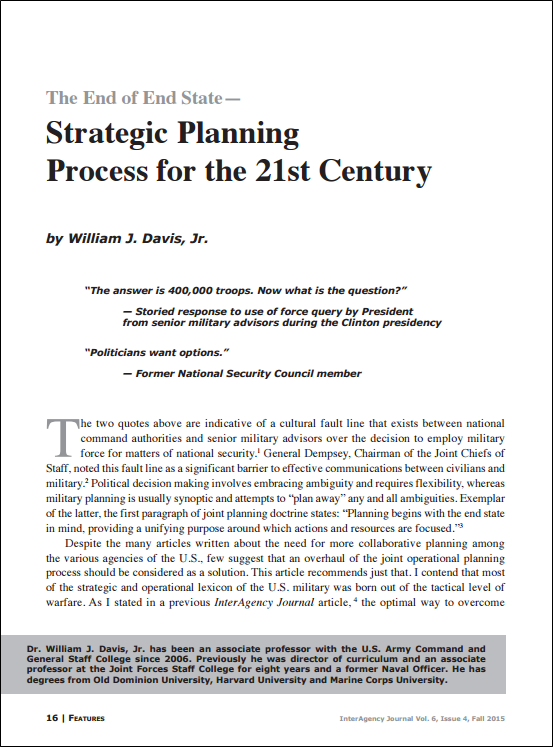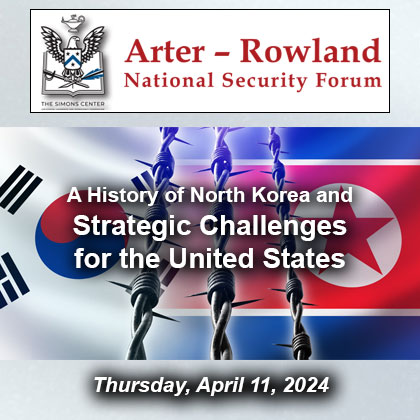Featured Article: The End of End State
Featured article:
The End of End State – Strategic Planning Process for the 21st Century
by William J. Davis
The two quotes above are indicative of a cultural fault line that exists between national command authorities and senior military advisors over the decision to employ military force for matters of national security. General Dempsey, Chairman of the Joint Chiefs of Staff, noted this fault line as a significant barrier to effective communications between civilians and military. Political decision making involves embracing ambiguity and requires flexibility, whereas military planning is usually synoptic and attempts to “plan away” any and all ambiguities. Exemplar of the latter, the first paragraph of joint planning doctrine states: “Planning begins with the end state in mind, providing a unifying purpose around which actions and resources are focused.”
Despite the many articles written about the need for more collaborative planning among the various agencies of the U.S., few suggest that an overhaul of the joint operational planning process should be considered as a solution. This article recommends just that. I contend that most of the strategic and operational lexicon of the U.S. military was born out of the tactical level of warfare. As I stated in a previous InterAgency Journal article, the optimal way to overcome interorganizational differences is to find couplers that allow each culture to operate intact. It is usually counterproductive to try to change a culture, as it brings to the situation a unique set of intricately intertwined skills. In this article, I am arguing that the lexicon and approach of the Department of Defense (DoD) should change to better work within the national security arena...
Read the full article
The End of End State – Strategic Planning Process for the 21st Century PDF
Download the complete edition
Dr. William J. Davis, Jr. has been an associate professor with the U.S. Army Command and General Staff College since 2006. Previously he was director of curriculum and an associate professor at the Joint Forces Staff College for eight years and a former Naval Officer. He has degrees from Old Dominion University, Harvard University and Marine Corps University.

Posted: December 13, 2016 by Simons Center
READ THE LATEST UPDATES FROM THE SIMONS CENTER
"*" indicates required fields


